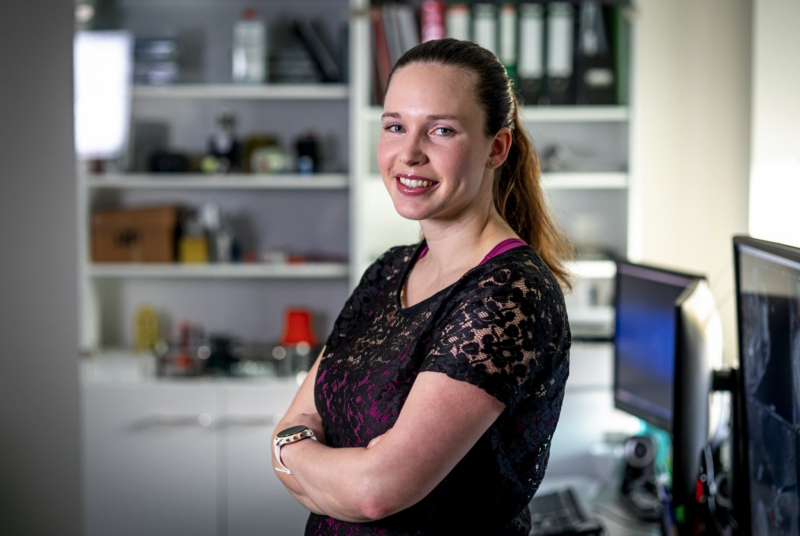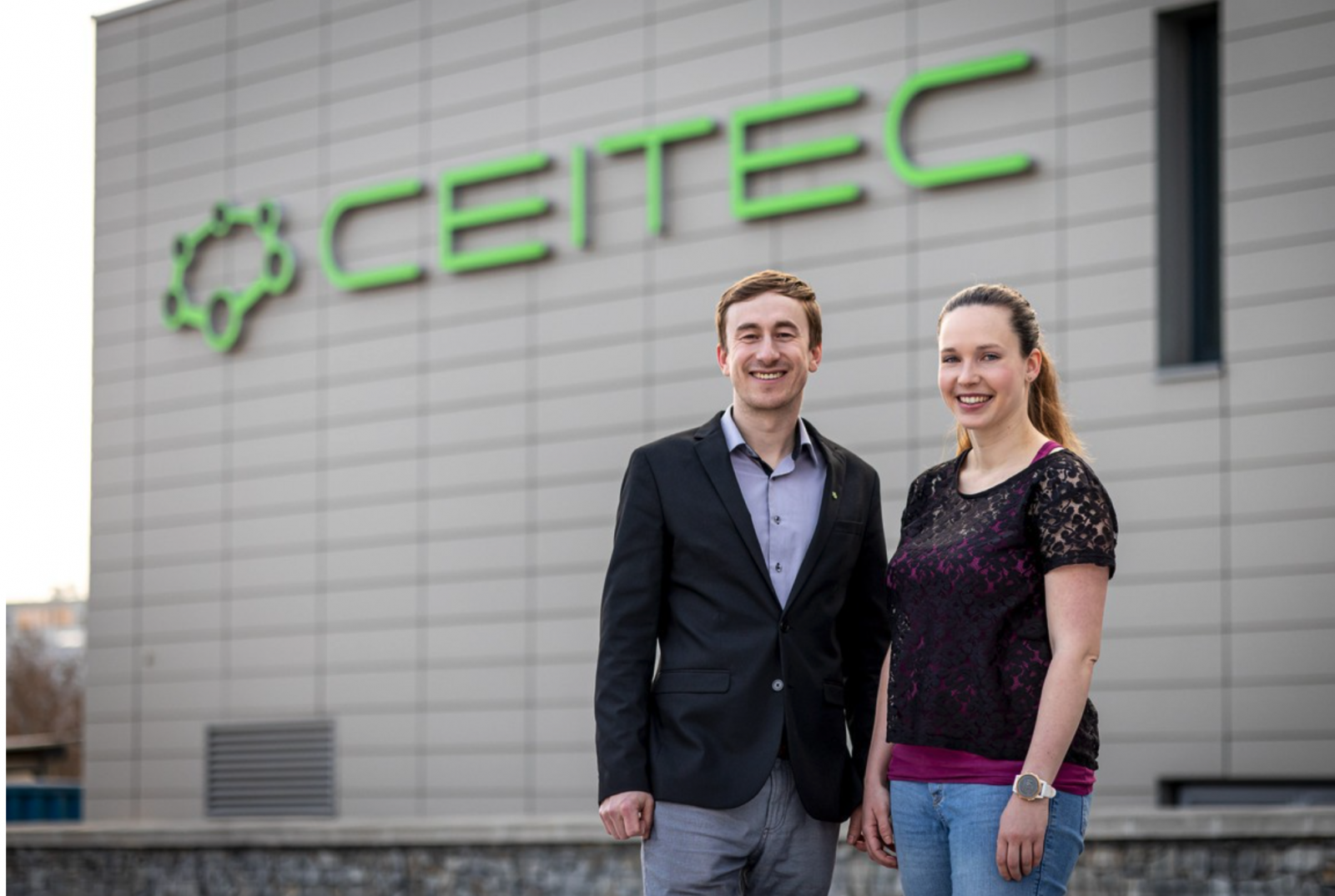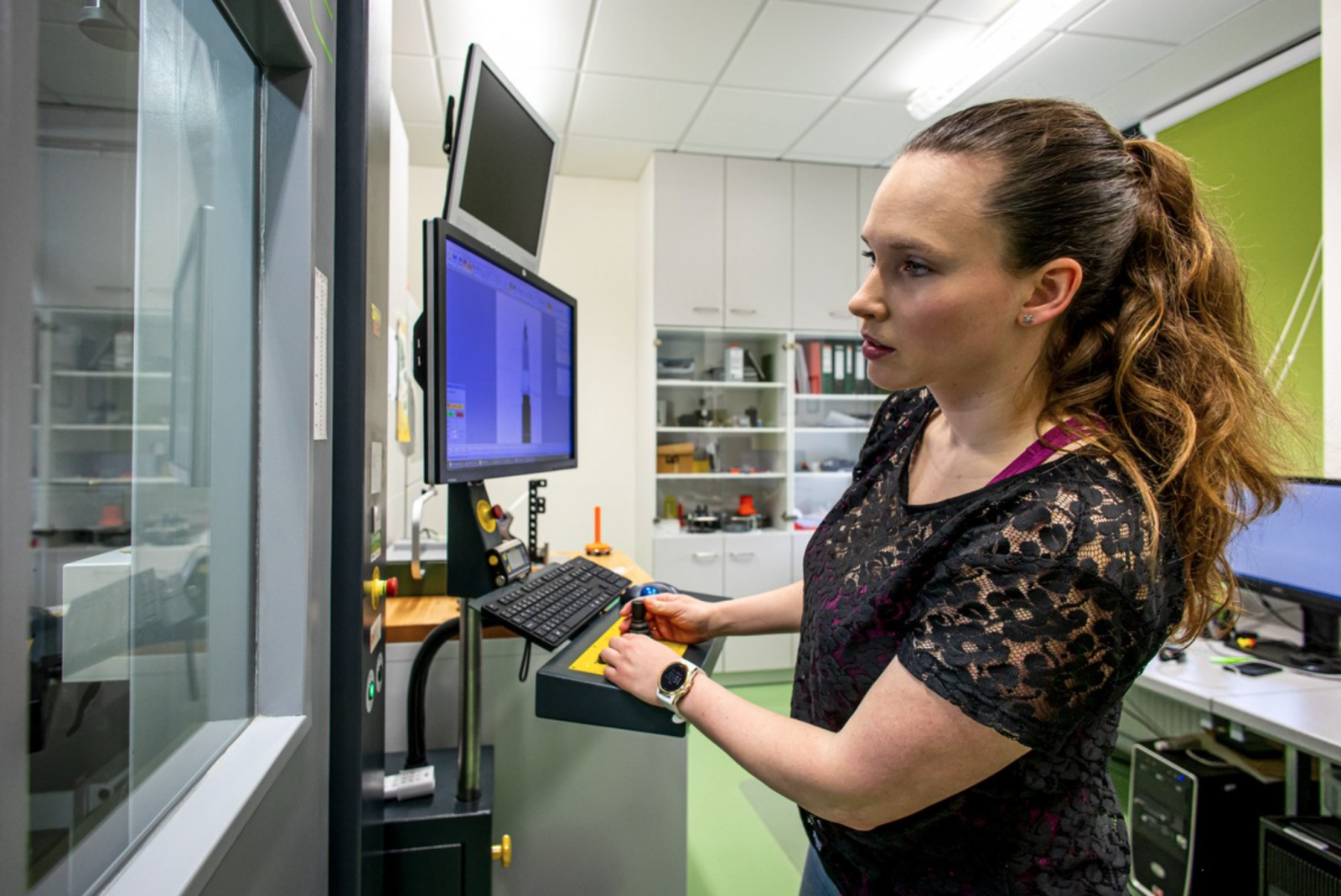People
Two awards for young scientist Markéta Tesařová

The Werner von Siemens Prize for third place in the Best Dissertation category and the Award for Excellence in Women's Scientific Work went to Markéta Tesařová from CEITEC Brno University of Technology for her thesis entitled Quantitative 3D characterization of biological structures using X-ray computed microtomography.
Although the use of 3D imaging methods has become increasingly popular in recent years, there has been a lack of methodology for more detailed characterization of biological structures. This deficit has been partially eliminated by the dissertation work of Markéta Tesařová. The procedures for X-ray computed microtomography that she proposed in her work allow for 3D quantitative characterization of an unprecedentedly wide range of biological samples.
The results of Markéta Tesařová's thesis are of far-reaching importance not only for the imaging community but also for biologists themselves. Thanks to these results, it has already been possible, for example, to elucidate the regenerative abilities of salamanders or to better explain face formation in vertebrates.
"I believe that the results of her work will be taken up by other teams and that it will become a standard method in studies investigating the growth development of organs, the influence of genetic disorders, the regenerative capacity of tissue or the effectiveness of new drugs," explains her supervisor Tomáš Zikmund summarising the practical significance of Markéta Tesarova’s dissertation.
Markéta Tesařová was already heading towards her future specialisation in high school, where she was most interested in biology and physics. In the end, she decided to study physics and take a more technical path. “I wanted to participate in projects where I could see the practical application of my work. However, when the opportunity arose to be involved in a project linking the technical world with biological research, I didn’t hesitate,” she says.

At first they didn't believe us
She considers the rejection of the first scientific paper she co-authored to be the most difficult moment of her scientific career so far. "The reviewers wrote to us at the time that they didn't believe we could achieve the claimed images using X-ray computed microtomography. We didn't even get a chance to convince them and the paper was immediately rejected," she recalls. However, it was also at this point that she began to realise she was working on something groundbreaking, and her motivation and effort grew even more.
She does not have a specific scientific or life role model, but is inspired by successful women around her who manage to combine their professional roles with motherhood. "It gives me the motivation that somehow it will work out when I run out of energy," she confides. She doesn't think women generally bring anything different to science than men - but the female and male perspectives often differ, she says. "So it's important that the research team is diverse in terms of gender or even age." Still, she appreciates any initiative aimed at supporting women in science or anywhere else. "While I feel there has been a recent increase in debates about the equivalence of the sexes in science and other professions, we need to acknowledge that the life roles of men and women in society are simply different," she points out.
She likes to compete
She entered the Werner von Siemens Prize mainly because she was interested in how her work would compare with others of a similar quality. "And I'm also competitive, so I apply almost everywhere I can. Even failure in a competition is valuable feedback," says Markéta Tesařová.
She is already quite clear about the use of the prize money. If she succeeds in obtaining the grant she has applied for, she will partly move her research to Slovenia. She would then use part of the funds for the costs associated with this move.
Her great hobby is sport, of all kinds. She used to be very active in orienteering, for example. Associate Professor Zikmund also appreciates her healthy lifestyle. "On the human side, I also appreciate the fact that she doesn't forget about physical exercise and does sports alongside her scientific work," she says.
Markéta Tesarová currently devotes most of her free time to her family and her two daughters.
Author: CEITEC BUT
Petr Viewegh’s Microcosm and Macrocosm
Gene therapy in developing countries. Alžběta Ressnerová is working on an easier application of CRISPR-Cas9
A priceless offer. CEITEC will help researchers to bring the results of their work to the market
CEITEC scientists reveal the true mechanism behind a popular brain stimulation method
Simpler bone regeneration process. CEITEC researcher tests unique combination of titanium and hydroxyapatite